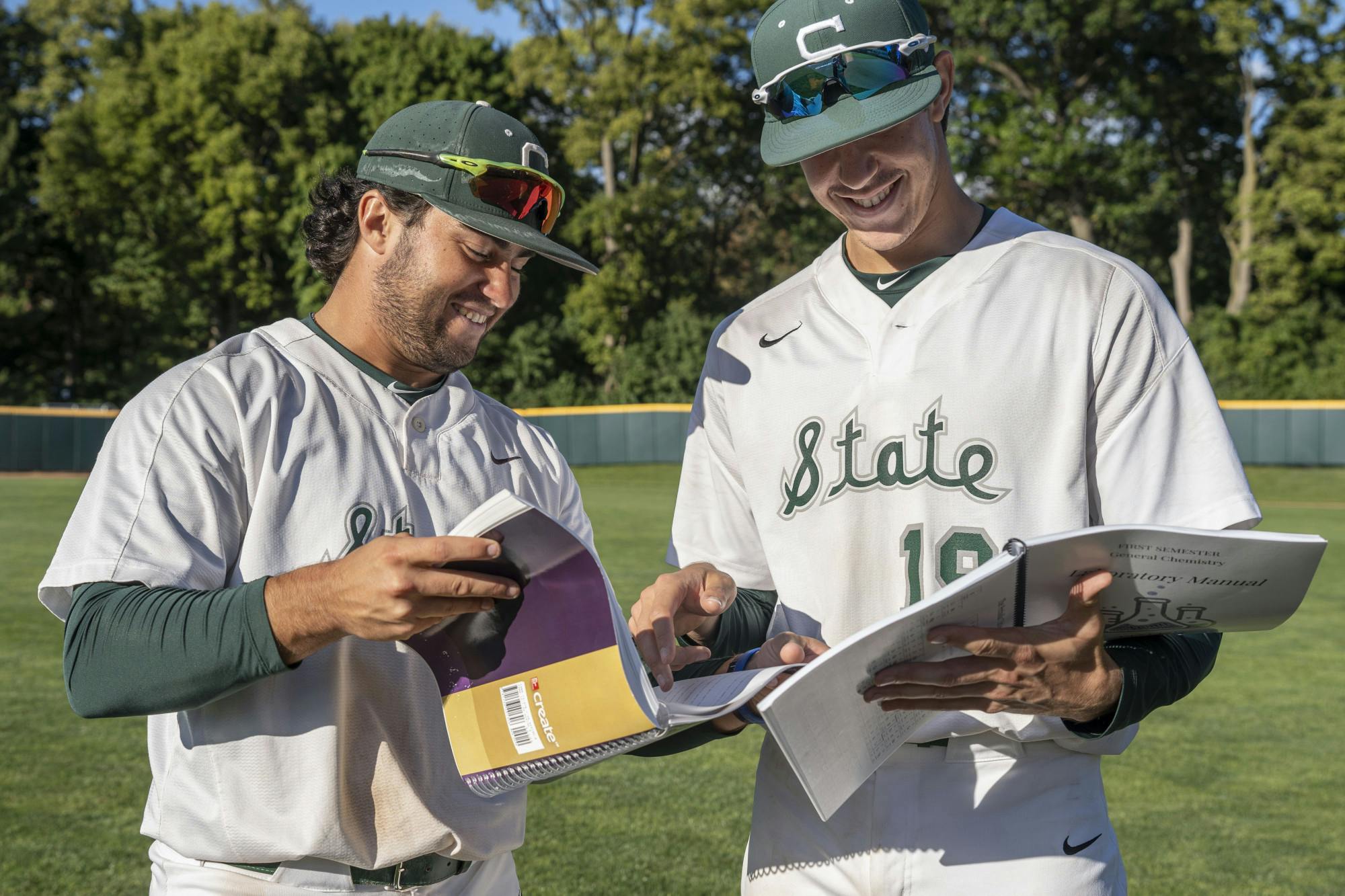A typical student-athlete balances a full plate of intense practice schedules, classes and any additional extracurriculars.
But for student-athletes with STEM majors, the challenge is even more difficult due to the demand of a heavy course load.

A typical student-athlete balances a full plate of intense practice schedules, classes and any additional extracurriculars.
But for student-athletes with STEM majors, the challenge is even more difficult due to the demand of a heavy course load.
A day-in-the-life of mechanical engineering sophomore and women’s soccer player Jordyn Wickes consists of studying in the morning before heading to class, attending about four hours of practice and then going home to shower and eat, which is followed by any leftover homework.
Wickes said she picked mechanical engineering as her major because of her interest in math and science.
“I definitely wanted to come into college with a degree that would challenge me,” Wickes said. “I have an uncle who's an engineer, and he let me kind of shadow him to see what it was like, and engineering seemed like something that I would be happy pursuing in my future.”
Wickes said the adjustment from high school to college academics as an athlete was a learning curve, but support from her academic advisor has helped her manage her schedule.
Mechanical engineering fifth-year and men’s tennis player Anthony Pero said he chose his major because he was skilled at physics and math growing up.
Pero’s dad was a “big numbers guy,” so he grew up doing math regularly. He said he disliked writing papers, so he knew STEM was his field.
Since an engineering degree at Michigan State requires the most credits of any major – 128 – Pero said he tends to have more classes than his teammates.
“It’s manageable once you organize yourself, but I tend to have three classes a day and then practice right after and in between,” Pero said. “I've been an injured athlete for two to three years now, so a lot of time in the training room. Leaving in the morning and not getting home until after practice is normally what it is.”
Pero said labs as an engineering major are also lengthy, which adds to his already packed schedule. When Pero was injured, it was difficult to stand the entire time.
Like Wickes and Pero, applied engineering sciences junior and baseball player Bryan Broecker said his interest in math and science led him to a STEM major.
“I love the problem-solving of engineering, but I wasn't quite sure that engineering was the best option for me,” Broecker said. “Applied engineering, which a lot of people call AES, is in the College of Engineering, but there's a lot more business to it … so I get a little bit of the best of both worlds.”
Kinesiology junior and baseball player Trent Farquhar said he originally planned to major in physical education and health but ultimately landed on kinesiology.
“There's a lot of nutrition facts and obviously anatomy and physiology of how the body works,” Farquhar said. “Understanding my body as I'm out here playing is really cool to me.”
Over the years, Farquhar said he’s learned to manage his schedule by utilizing his free time to do school work, which includes any time he has before practice. Working ahead helps him prevent procrastination and stress, especially after long, tiring practices.
Advice for other student-athletes studying STEM
Pero said organization, communication and planning his day out have helped him manage his schedule throughout his college career. His advice to student-athletes in STEM is to “accept the challenge.”
“It can seem a little overwhelming at times, but you just got to hang in there, more or less,” Broecker said. “Just try and plan out your days and see what you’re doing. Stay on top of your homework and you'll get through it.”
Farquhar said it’s important for student-athletes to pick a major they enjoy, especially if it’s in STEM.
Support student media! Please consider donating to The State News and help fund the future of journalism.
“You're in this for a reason and you hopefully like it, and you enjoy it,” Farquhar said. “If you're enjoying STEM, it's going to make it a lot easier and you can make the workload a lot less.”
Wickes said she advises other student-athletes, specifically those studying STEM, to stick with it even when it gets tough and to lean on a support system.
“It’s not easy … it's going to be hard, but … don't give up,” Wickes said. “There's going to be some really, really hard times and really hard moments, but sticking through it, relying on your teammates and the people around you to get through those – it's going to be worth it in the end.”
This story was featured in our STEM edition. Read the full issue here.